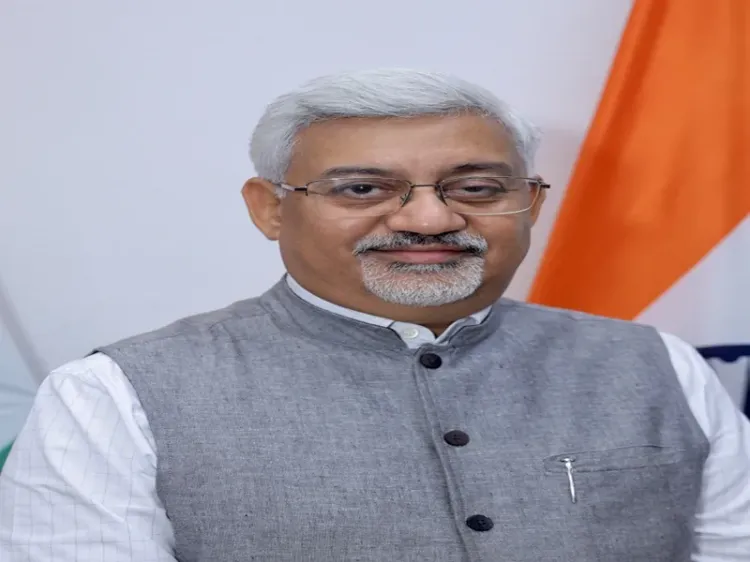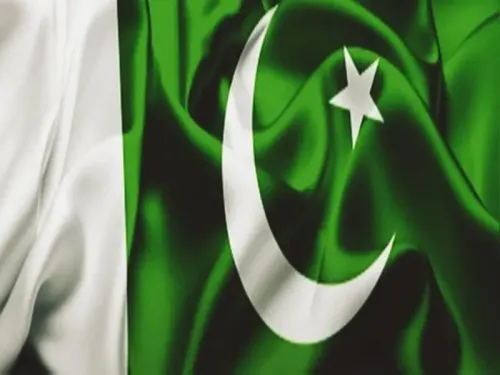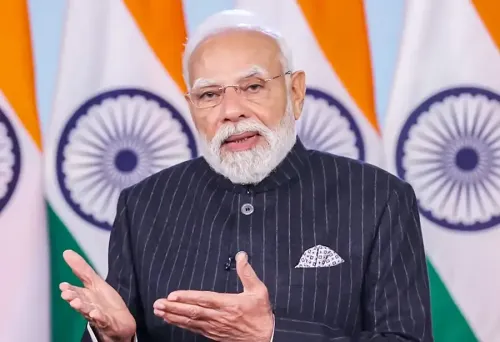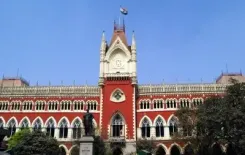India Has Not Committed to Tariff Reductions in US Talks: Government

Synopsis
Key Takeaways
- India has not agreed to lower tariffs on US goods.
- Ongoing trade negotiations with the US.
- Importance of protecting India's domestic economy.
- Preference for bilateral tariff negotiations.
- Distinct circumstances compared to Canada and Mexico.
New Delhi, March 11 (NationPress) The Government has communicated to the Parliamentary Standing Committee on External Affairs that India has not made any commitment regarding the reduction of tariffs on goods imported from the US.
During a briefing, Commerce Secretary Sunil Barthwal informed the Parliamentary committee that discussions between India and the US are still in progress and that no definitive trade agreement has been reached.
Barthwal's remarks followed US President Donald Trump's assertion that India had agreed to significantly lower its tariffs on US products.
He stated, "One cannot rely solely on the US President's statements or media reports, as the bilateral trade agreement negotiations are ongoing. India has not pledged anything regarding trade tariffs to the US."
He emphasized that India's priorities are crucial and will be safeguarded during the trade negotiations.
Barthwal mentioned that while India supports enhancing bilateral trade with the US, it will not arbitrarily reduce tariffs, particularly in sectors vital to its domestic economy.
“India prefers to negotiate tariff reductions bilaterally rather than multilaterally to uphold national interests," Barthwal told the parliamentary committee.
He also pointed out that India’s circumstances are distinct from those of Canada and Mexico, as these countries share a border with the USA, which entails security considerations.
Trump’s ‘America First’ policy risks disrupting global trade, as the US President has accused trading partners of unfair practices and has threatened to implement widespread punitive tariffs. He has specifically accused India of imposing high tariffs on US goods.
A report by Morgan Stanley notes that India is the “best-placed country in Asia” amid the global uncertainty instigated by President Trump’s tariff threats, due to the nation's low goods exports to GDP ratio and robust government policies aimed at supporting domestic demand.
“While India faces direct tariff risks, we believe that overall, India is less vulnerable to a global goods trade slowdown considering it has the lowest goods exports to GDP ratio in the region,” the report states.
The report indicates that while India may eventually strike a trade deal with the US, it will be relatively more complicated due to various bilateral trade issues.
Additionally, the report highlights that the WTO’s most-favored-nation principle prevents India from adjusting its tariffs on US imports without extending the same adjustment to other WTO members unless it occurs under a free-trade agreement.
Under WTO agreements, countries typically cannot discriminate between their trading partners. Granting special favor (such as a reduced customs duty rate for one product) necessitates offering the same to all other WTO members.









